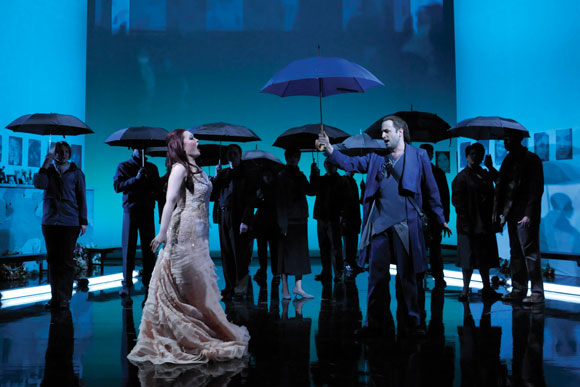by Pat McSparin // Fall 2011
St. Louis Post Dispatch founder Joseph Pulitzer’s will required the establishment of a set of awards to encourage and honor excellence. The first awards were presented in 1917, six years after Pulitzer’s death. Today, there are 21 Pulitzer Prize categories, ranging from investigative reporting and photography to poetry. The Pulitzer Board picks the winners and Columbia University administers the process. Past honorees include John F. Kennedy, Ernest Hemingway, Aaron Copland and Tennessee Williams. The Kansas City Star has won eight Pulitzers in its 131-year history. In 2011, two of the 21 awards went to members of the UMKC family.
Music to his ears
Zhou Long’s Pulitzer Prize came as a surprise to him. The UMKC Conservatory of Music and Dance research professor of music composition didn’t know he’d won, even after he received his first congratulations. “I heard the news in a phone call from the American Music Center,” he says. “They asked for comments they could put on the news, but I didn’t know what they were talking about. They said, ‘Congratulations,’ and hung up.”

Within hours, news outlets from Beijing to New York City broke the story: Zhou won the 2011 Pulitzer Prize for music. He is the first Asian American to do so. Earning commissions and awards for his work—including the American Academy of Arts and Letters’ lifetime achievement award—is nothing new to Zhou. But he says this award is particularly special. “The Pulitzer Prize is a quintessential American award, and I am proud to be the first Asian American to win it for music.”
It was an opera version of Madame White Snake that brought Zhou the Pulitzer. A folk tale about a snake that takes the form of a beautiful woman, the story of Madame White Snake has been passed on for generations through Chinese oral tradition and later in movies, television and novels. Zhou learned the story the same way kids from the West hear fairy tales. “I’m familiar with the legend from my childhood,” he says.
Born to a creative family (his father was a painter and his mother a pianist), Zhou began piano lessons at a young age. But China’s Cultural Revolution interrupted his path when the government sent him to the country to work on a farm. Driving a tractor wasn’t Zhou’s choice, but his friend Carl St. Clair, music director of the Pacific Symphony, later suggested he look back at his time in the countryside from a different light. “He told me he grew up on a farm and said he also drove a tractor. I learned to look at it as not punishment, but a life experience,” Zhou says.

